
Welcome to The Yauponeer Blog!
A space where we discuss anything and everything yaupon related
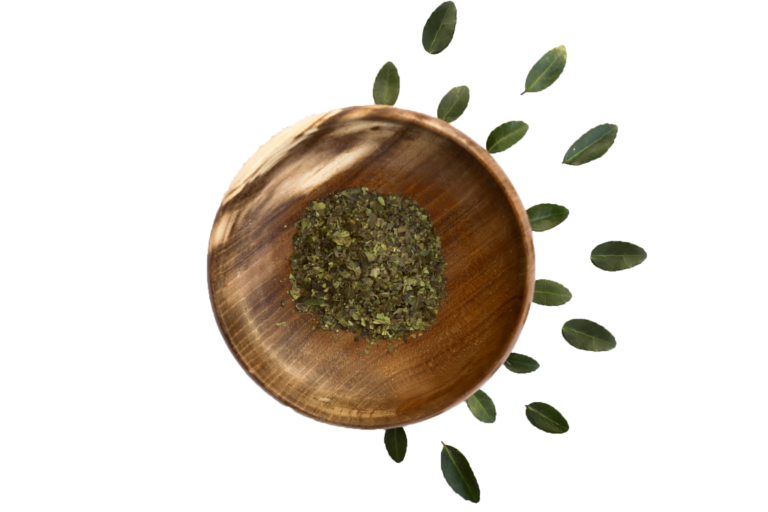
Yaupon's Unique History
To unearth the mysterious and intriguing history of the once sacred Yaupon Holly, we must first examine the history and origins of caffeine, coffee, and tea in the first place, and show truly how powerful and transformative this now commonplace drug has been to western culture, society, and productivity.
Although many may not realize it, caffeine is a relatively new substance to humans and western society, with its first real adoption beginning only in the last few hundred years, after the time of Columbus and the discovery of the Americas. It mainly came in the form of Asian tea and eventually coffee, with especially western Europe and England taking a strong liking to Asian grown tea.
It was no surprise then that the first and largest corporation in the world at the time was the Dutch East India Company, who had amassed enormous wealth bringing Asian tea to the European market. Soon after this “gold rush” of tea trade begun, rumors started to spread of a tasty, bitter less, caffeinated tea from North America, called Asi, Yaupon, Cassine, or Appalachicola Tea.
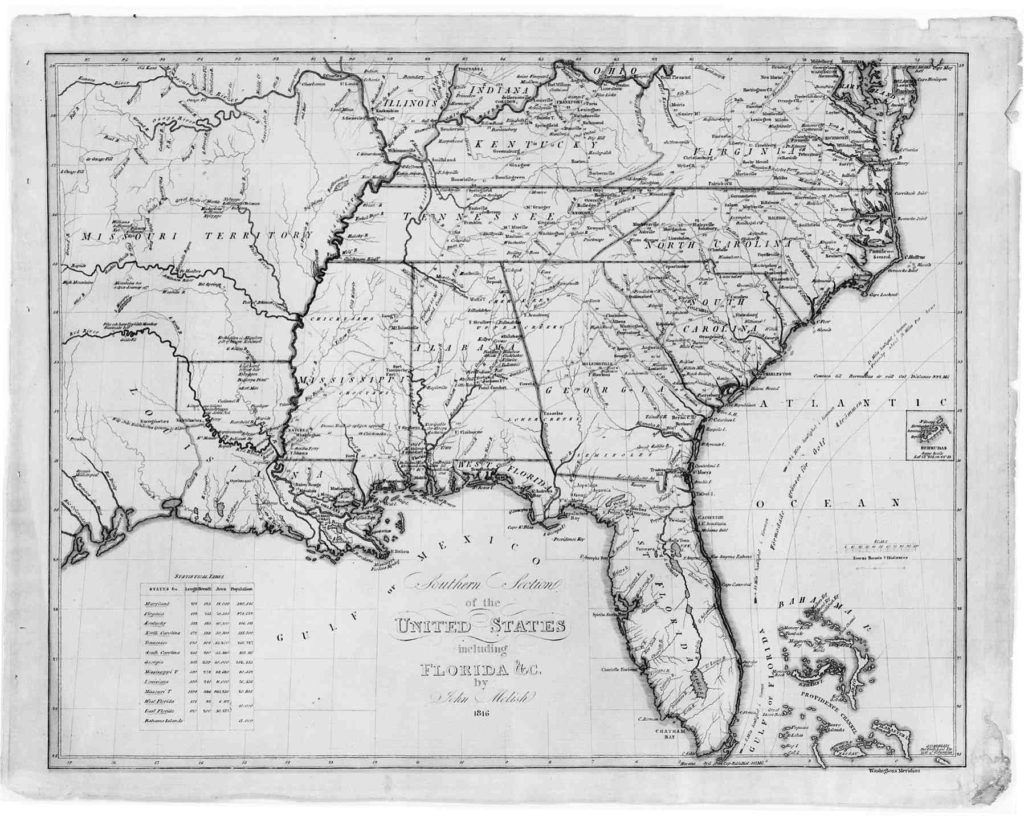
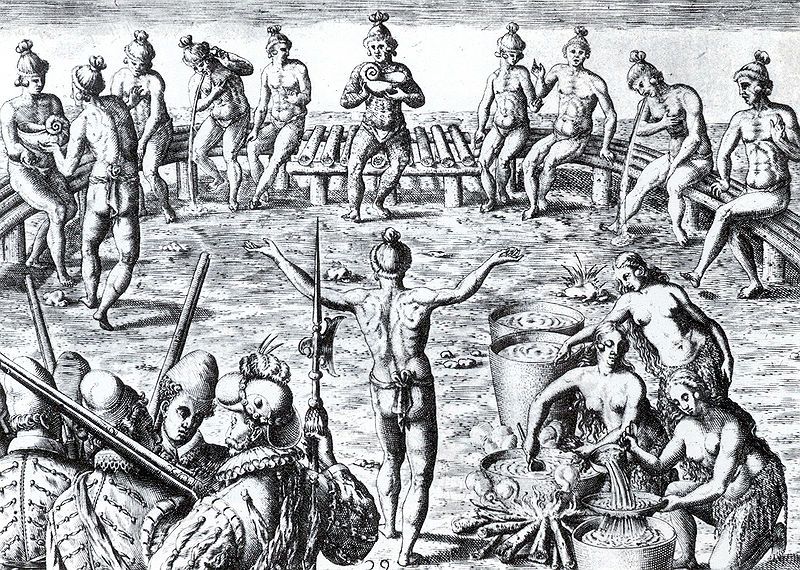
Left: An early 1800’s era map depicting the southeastern US. Right: An artists rendition of Eastern Timucua Indians taking black drink.
Commonly drank and traded by the many ingenious groups that inhabited the southeastern US, this “yaupon tea,” made from the leaves of the native Yaupon Holly plant, quickly made its way into western society and culture.
By the 1600’s, yaupon tea was so popular in the America’s and Europe that a Spanish priest was once quoting saying,
““There is no Spaniard or Indian who does not drink it every day in the morning and evening…it is more of a vice than chocolate in New Spain […] any day that a Spaniard does not drink it, he feels that he is going to die,” wrote Father Francisco Ximenez in a 1615 text quoting Francisco Hernández de Toledo, a court physician ordered by King Philip II of Spain to study medicinal plants of the New World.
By the mid 1700’s yaupon tea was one of the largest exports out of the Colonies, just falling behind lumber. Not only was this an important drink for indigenous peoples, colonists, and European society at large, but it was also vital to the creation of the United States itself.
“Hold up, wait a second… You’re telling me a native caffeinated plant I’ve never heard of was pivotal in the creation of the United States of America?”
Well, yes, yes it was!

An artists rendition of the Boston Tea Party protest, December 16th, 1773, famously known for sparking the American Revolution.
We all remember the Boston Tea Party, right?
A group of understandably upset colonists tossed a whole but of British tea into the harbor in revolt of increased taxes. Well, soon after, the colonists were engaged in all out warfare, and its not like they could continue drinking British tea. This was, in fact, a serious problem, because at the time and is still true today, a vast majority of people drink tea daily, often more than once a day.
Luckily, thanks to Yaupon tea, the US was able to stay fully supplied with caffeine throughout the war despite being cut off from its external caffeine sources. More so, right after the Boston Tea Party event took place, Yaupon Tea was immediately sent to Boston under the name Liberty Tea, showing both solidarity with the cause and a temporary solution to the hundreds of pounds of tea now floating in the harbor.
“Okay, so if yaupon tea was so important to the creation of the US and its people, what happened? Why don’t we all drink yaupon tea now?”
Great question: The short answer, no one really knows…
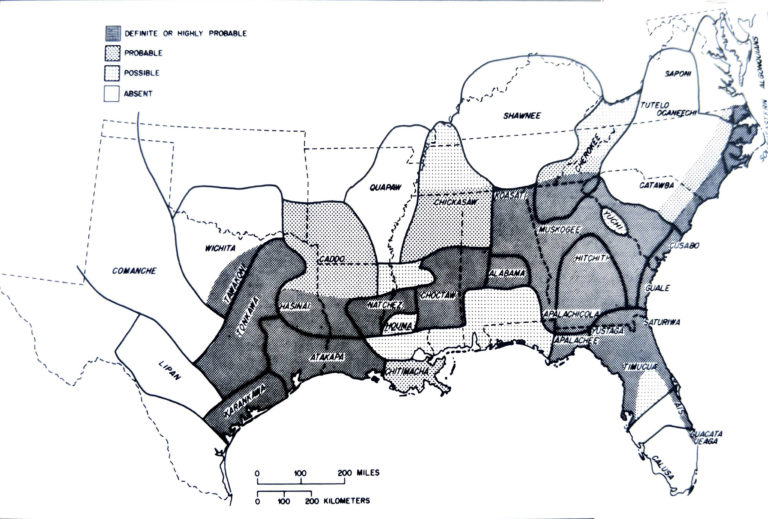
A map depicting the likelihood of Yaupon Holly (Ilex vomitoria) usage among various Native American tribes.
Many hundreds of years ago, long before the time of Columbus and the discovery of the America’s, a longstanding ritual was commonplace throughout the southeastern US.
Although its exact purpose and cultural significance is unknown, what is known is that it was quite a popular ceremony among many indigenous tribes and their peoples for hundreds if not many thousands of years. It was essentially a coming-of-age ceremony for men, potentially like a bar mitzvah for the Jewish religion, which involved drinking many cups of a strange, boiled liquid, simply called the “Black Drink.”
This substance would soon induce vomiting, and it is said the more liquid consumed before that point would be the level of purity the consumer enjoyed while journeying into adulthood. We know this because this ceremony was observed by various westerners from time to time, including one whos writings eventually led to Yaupon’s infamous latin name, Ilex vomitoria.
While the exact details still remain fuzzy to this day, many attribute Yaupons’ unfavorable name to one famous British botanist, William Aiton, who originally gave it the name, Ilex vomitoria, as he is believed to have read it being used in this “Black Drink” concoction.
Many question the exact details of this story, however, because at the time, the Dutch East India Co. was struggling to control its global stronghold on tea due to the rising popularity of its new North America competitor, yaupon tea, and William was actively being funded by them to catalog plants at the London botanical Garden at Kew, where Yaupon Holly was officially first recognized.
Never less, not more than 20 years later, partially due to its concerning name and mysterious origins, yaupon tea consumption quickly began to vanish…
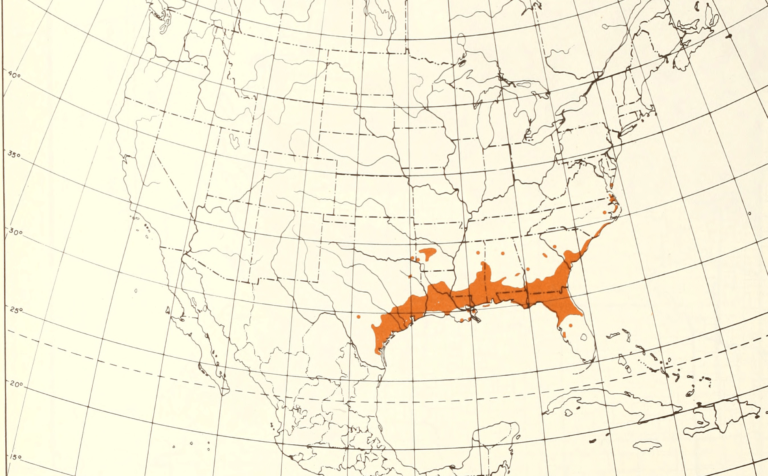
A map depicting the native geographic range of Yaupon Holly (Ilex vomitoria) throughout the continental US.
There was a temporary resurgence in yaupon usage in the south during the Civil War, as the southeast was once again shutoff from its foreign sources of caffeine by the Union Blockade. Unfortunately, by this time, yaupon tea had quite the bad wrap, with its consumption being associated with a poor or lower-class drink. Soon after the conflict, yaupon tea was once again swept into the corners of history, with only a few isolated communities enjoying its superior benefits.
And that’s just about it.
Like I mentioned, a few isolated communities still remembered and utilized the many benefits of yaupon holly, one notable one being the Cherokee Indians of North Carolina. Before being driven off their land to reservations farther west, they had managed to successfully cultivate and trade Yaupon Holly outside of its native range, with remnants of their success found at various historical sites around present-day Charlotte, NC.
Also, remember how I mentioned caffeine consumption only appeared in the last few hundred years in the west? Well, that’s not completely true.
Although not confirmed, chemical evidence from various dig sites throughout the American south have shown traces of caffeine and theobromine, left behind from yaupon consumption, thousands of years before the time of Christopher Columbus. More so, a dig site in present day Florida from the Timucuan Indians shows the burial of a chief adorned with his Welk shell, thought to be a specialized cup carried with him specifically for yaupon consumption. With these same or similar cultures present upwards of 10,000 years ago in North America, it’s safe to assume the history and origins of yaupon holly usage goes back much further than we could have ever imagined.
(Stayed tuned for a future blog post taking a deeper dive into Yaupon and the indigenous peoples of the southeast)
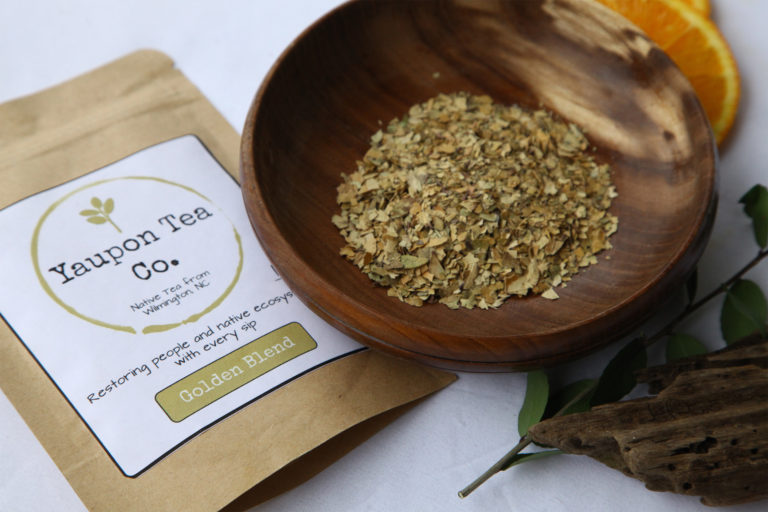
A sustainably hand-crafted, wild-harvested bag of Yaupon – Golden Blend (Loose Leaf) from Yaupon Tea Co.
So, are you now convinced enough to give potentially mankind’s oldest known stimulant, yaupon holly, a try?
Don’t worry, there are no ill effects associated! In fact, because it contains almost no tannins, or bitterness, it is said to be much lighter on the stomach than traditional coffee or Asian tea. And with its high level of theobromine and antioxidants, it induces relaxing and mood enhancing effects while suppling you clean, natural, caffeinated energy.
Plus, because its native only to the southeastern US, and we at Yaupon Tea Co. work sustainably in direct collaboration with local land stewards, every cup goes towards helping to restore native ecosystems right here in our backyard.
So, join the movement and journey with us on a path to natural and ecological enlightenment through the wonders of yaupon holly and yaupon tea!
Till next time,
-Andrew
I enjoy the efforts you have put in this, thanks for all the great content.
Greetings! Very helpful advice on this article! It is the little changes that make the biggest changes. Thanks a lot for sharing!
Howdy! I could have sworn I’ve visited this blog before but after looking at a few of the posts I realized it’s new to me. Nonetheless, I’m certainly pleased I came across it and I’ll be bookmarking it and checking back frequently!
Excellent post! We are linking to this great post on our website. Keep up the good writing.
After research just a few of the weblog posts on your web site now, and I really like your method of blogging. I bookmarked it to my bookmark website record and shall be checking again soon. Pls try my site as nicely and let me know what you think.
Thank you for another informative blog. Where else could I get that kind of info written in such an ideal way? I have a project that I’m just now working on, and I’ve been on the look out for such info.
A great post without any doubt.
Nice i really enjoyed reading your blogs. Keep on posting. Thanks